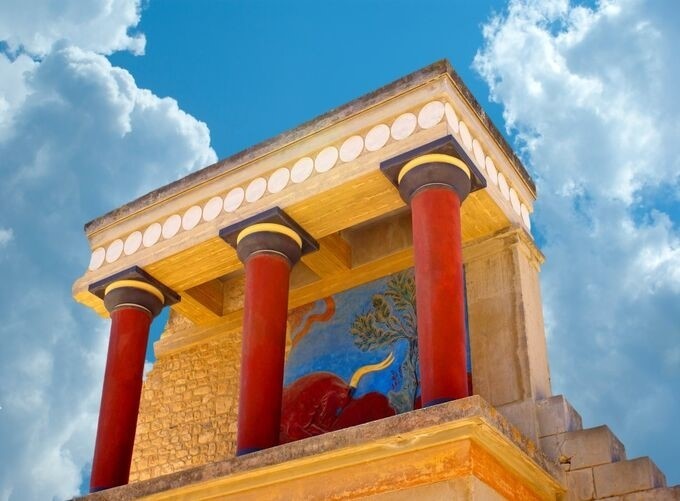
Greece in March | Weather & Travel Tips
March marks the beginning of spring in Greece, bringing longer days, blooming landscapes, and gradually warming temperatures. It is a wonderful time for travelers who want pleasant weather, fewer crowds, and excellent value on hotels, tours, and travel packages. For couples, March also offers a peaceful atmosphere ideal for a romantic honeymoon vacation.
Whether you are planning cultural sightseeing, a relaxing holiday, or exploring Greece through organized tours and vacation packages, this guide explains everything you need to know about Greece weather in March.
Average Weather in Greece in March
Greece enjoys mild early-spring conditions in March, although temperatures vary between regions.
- Athens & mainland cities: 9°C – 17°C (48°F – 63°F)
- Greek islands: 10°C – 18°C (50°F – 64°F)
- Northern Greece: 6°C – 14°C (43°F – 57°F)
- Sea temperature: Around 15°C (59°F)
- Rainfall: Light to moderate
- Daylight: About 11.5–12 hours per day
While evenings remain cool, daytime temperatures are comfortable for walking tours, archaeological visits, and outdoor sightseeing.
What to Wear in Greece in March
Layered clothing is ideal for spring travel in Greece.
Recommended items include:
- Light jacket or sweater
- Long-sleeve shirts and t-shirts
- Comfortable walking shoes
- Light scarf for evenings
- Compact umbrella or rain jacket
If you plan to visit mountainous areas, pack warmer clothing as temperatures can still be low.
Is March a Good Time to Visit Greece?
Yes, March is one of the best months for travelers who prefer calm surroundings and cultural experiences. Tourist numbers are still low, prices are reasonable, and the countryside begins to bloom.
Benefits of visiting in March:
- Fewer tourists at major attractions
- Lower hotel and flight prices
- Comfortable weather for sightseeing tours
- Ideal for relaxed holidays in Greece and honeymoon vacations
- Better availability of customized travel packages
Things to consider:
- Sea is cold for swimming
- Some island resorts open gradually toward late March
Overall, March is perfect for cultural travelers, photographers, and couples seeking peaceful vacations.
Best Places to Visit in Greece in March
Athens
Athens is outstanding in March. Explore the Acropolis, museums, Plaka, and ancient temples without summer heat or crowds. Rooftop cafés and guided sightseeing tours become more enjoyable.
Santorini
Santorini begins waking up for the season. Couples enjoy quiet streets, beautiful sunsets, and excellent hotel deals, making it attractive for honeymoon vacation planning.
Crete
Crete offers mild weather, blooming landscapes, and excellent hiking opportunities, especially around Chania and the Samaria Gorge area.
Thessaloniki
This lively city is perfect for food lovers and cultural travelers, offering a mix of history, shopping, and seaside walks.
Things to Do in Greece in March
- Explore archaeological sites comfortably
- Join city walking and cultural tours
- Enjoy Greek cuisine in local tavernas
- Visit monasteries and mountain villages
- Attend seasonal festivals and local events
March is ideal for slow travel, deep cultural experiences, and stress-free sightseeing holidays.
Greece Travel Costs and Packages in March
March is part of the shoulder season, meaning prices remain lower than summer.
You can find:
- Discounted hotels and boutique accommodations
- Affordable domestic flights
- Attractive sightseeing tours
- Competitive vacation packages covering Athens and islands
Many Greek tour operators offer spring travel packages that combine accommodation, transfers, and guided excursions, making this month excellent for budget-conscious travelers and honeymoon vacation seekers.
Best Time in March to Travel
- Early March: Cooler and quieter
- Mid to late March: Warmer temperatures and more services open
Late March is especially good for island visits as ferries and seasonal businesses resume operations.
Greece Weather in March Compared to Other Months
Compared to February, March is warmer, brighter, and more colorful. It is cooler than April and May but offers better prices and fewer crowds, making it one of the smartest months for cultural tourism and relaxed holidays.
Final Thoughts: Is Greece Worth Visiting in March?
Absolutely. Greece in March offers a perfect blend of mild weather, cultural richness, and excellent travel value. You can enjoy famous landmarks, authentic local life, and peaceful surroundings without the pressure of peak-season tourism.
Whether you are planning Greece sightseeing tours, romantic honeymoon vacations, or flexible holiday packages, March delivers comfort, beauty, and unforgettable experiences.

Frequently Asked Questions (FAQ)
- Is Greece warm enough to visit in March?
Yes, daytime temperatures are mild and comfortable for sightseeing, walking tours, and outdoor activities, although evenings can still feel cool.
- Can you swim in Greece in March?
Swimming is uncommon due to cool sea temperatures, but some hotels offer heated pools and spa facilities for holiday relaxation.
- Are tourist attractions open in March?
Yes, major museums, archaeological sites, and city attractions operate year-round, especially in Athens, Thessaloniki, and Crete.
- Is March good for honeymoon vacations in Greece?
Yes, March offers privacy, affordable luxury hotels, romantic scenery, and peaceful surroundings, ideal for honeymoon vacation packages.
- Are travel packages cheaper in March?
Yes, many Greece travel packages and tours are discounted in March compared to summer, making it a great month for budget-friendly holidays.



